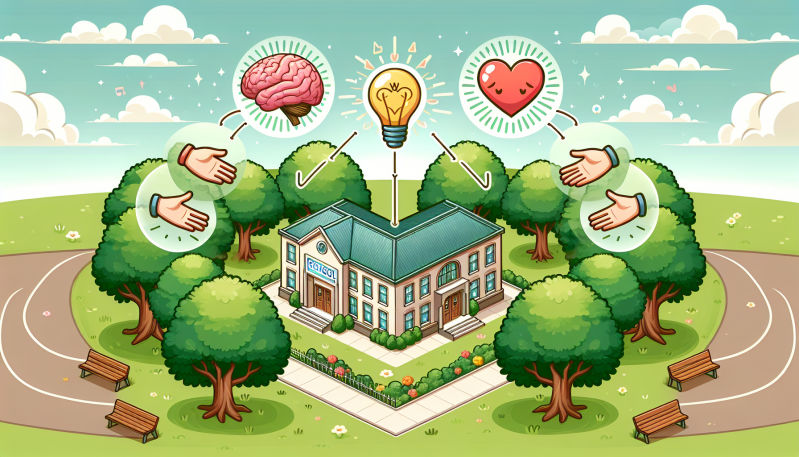In the interconnected world we inhabit, our schools serve as vital hubs of social and emotional learning for our children. The significance of these institutions goes beyond imparting academic knowledge; schools are in a unique position to combat loneliness, enhance mental health, and embrace Diversity, Equity, and Inclusion (DEI) principles. As we observe Friendship Week, let’s consider the transformative potential of educational environments in nurturing well-being and togetherness.
## The Impact of Loneliness on Young Minds
Loneliness is not merely an emotional state; it can manifest in diminished physical health and cognitive function, affecting everything from immune responses to academic performance. For school-aged children, the feeling of being disconnected can hinder their social development and lead to issues such as anxiety and depression. Active engagement by schools in recognizing and responding to the signs of loneliness is not just beneficial; it is imperative.
## Cultivating Kindness and Connection
Schools that prioritize kindness and social connection often notice dramatic improvements in their students’ mental health. Programs that encourage peer interactions, mentorship, and community service can foster an environment where children feel valued and supported. For instance, ‘Buddy Bench’ initiatives, where students can sit if they need someone to talk to, have been successful in creating moments of connection and reducing feelings of isolation.
## Integrating DEI in School Culture
DEI is not just a set of policies; it’s a culture shift towards greater respect, understanding, and representation of all individuals. When schools integrate DEI into their curricula and everyday practice, they provide students with a more holistic education that is reflective of the diverse world they inhabit. Initiatives that celebrate cultural differences, such as heritage months or anti-bias training, can contribute to a more inclusive school environment.
## Case Studies of Change
Examples abound of schools that have embraced these challenges with remarkable outcomes. From peer counseling programs to inclusive sporting events, the efforts to build emotionally intelligent and empathetic school communities are as diverse as the student bodies they serve. These stories not only inspire but also provide practical blueprints for others to follow.
## The Collaborative Role of Parents and Community
The work does not end at the school gate. Parents and the wider community have a crucial role to play in reinforcing the values of friendship, kindness, and inclusivity. Home environments and extracurricular activities that mirror the principles taught in schools create a consistent message for children, one that resonates and sticks.
## Call to Action
As we look ahead, it’s clear that the responsibility to mold our schools into sanctuaries of friendship and wellness is shared among us all. Whether you are an educator, an influencer, a parent, or simply an engaged member of your community, your actions and support can ignite real change. During Friendship Week, and every week, let’s commit to a collective effort to build inclusive, supportive, and healthy spaces for all our children to grow. Together, we can turn the tide on loneliness and cultivate a future marked by empathy and understanding.



